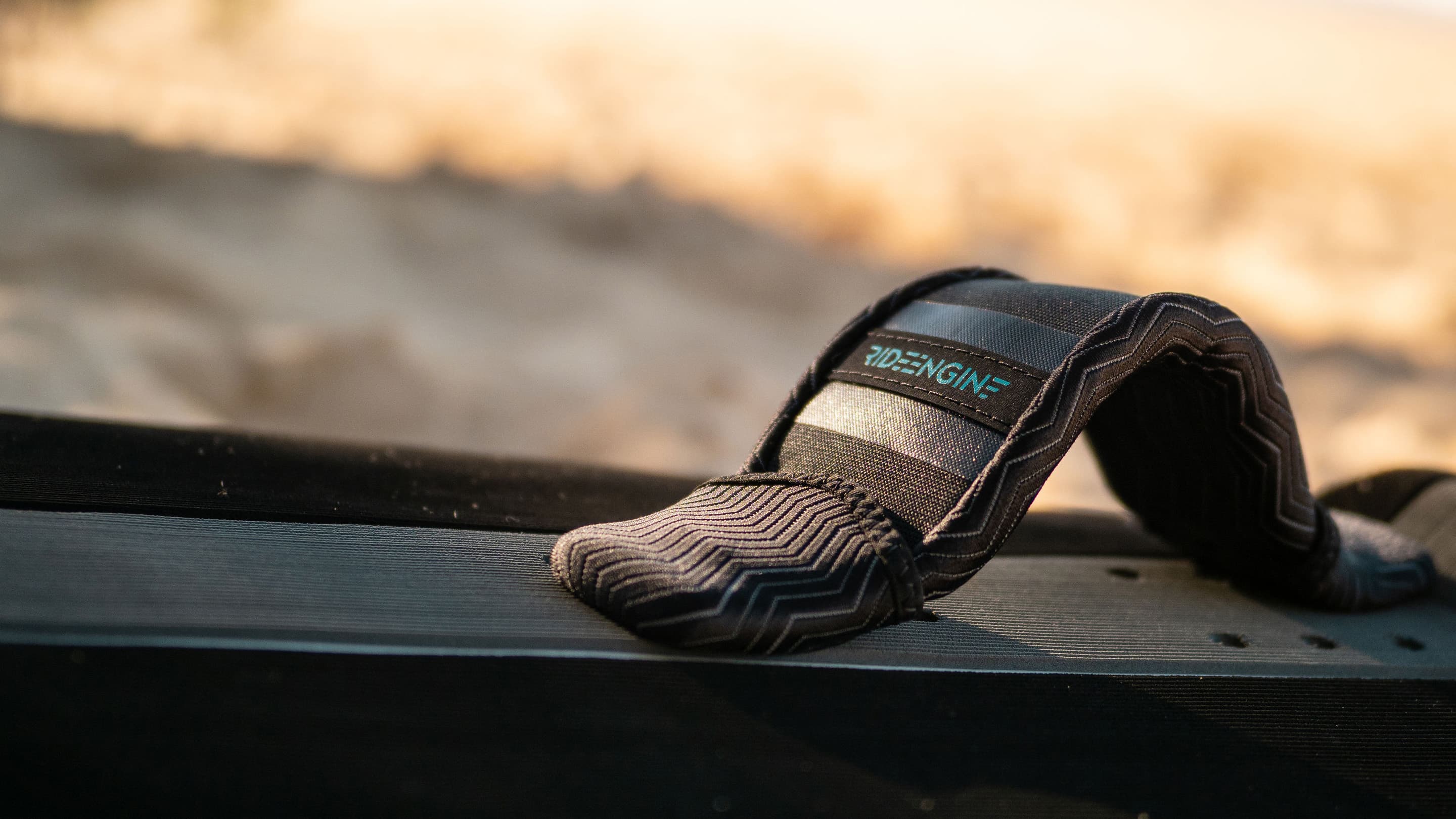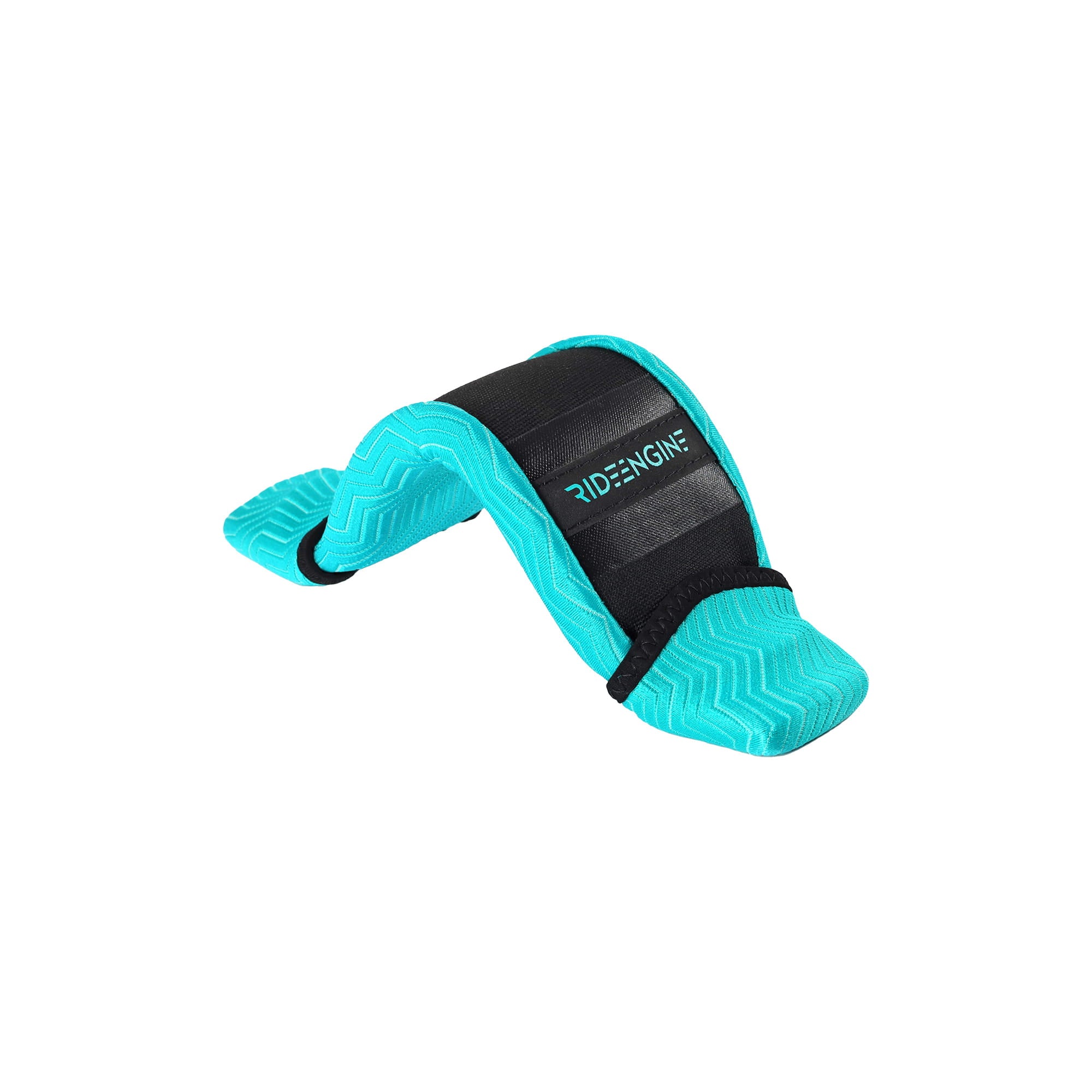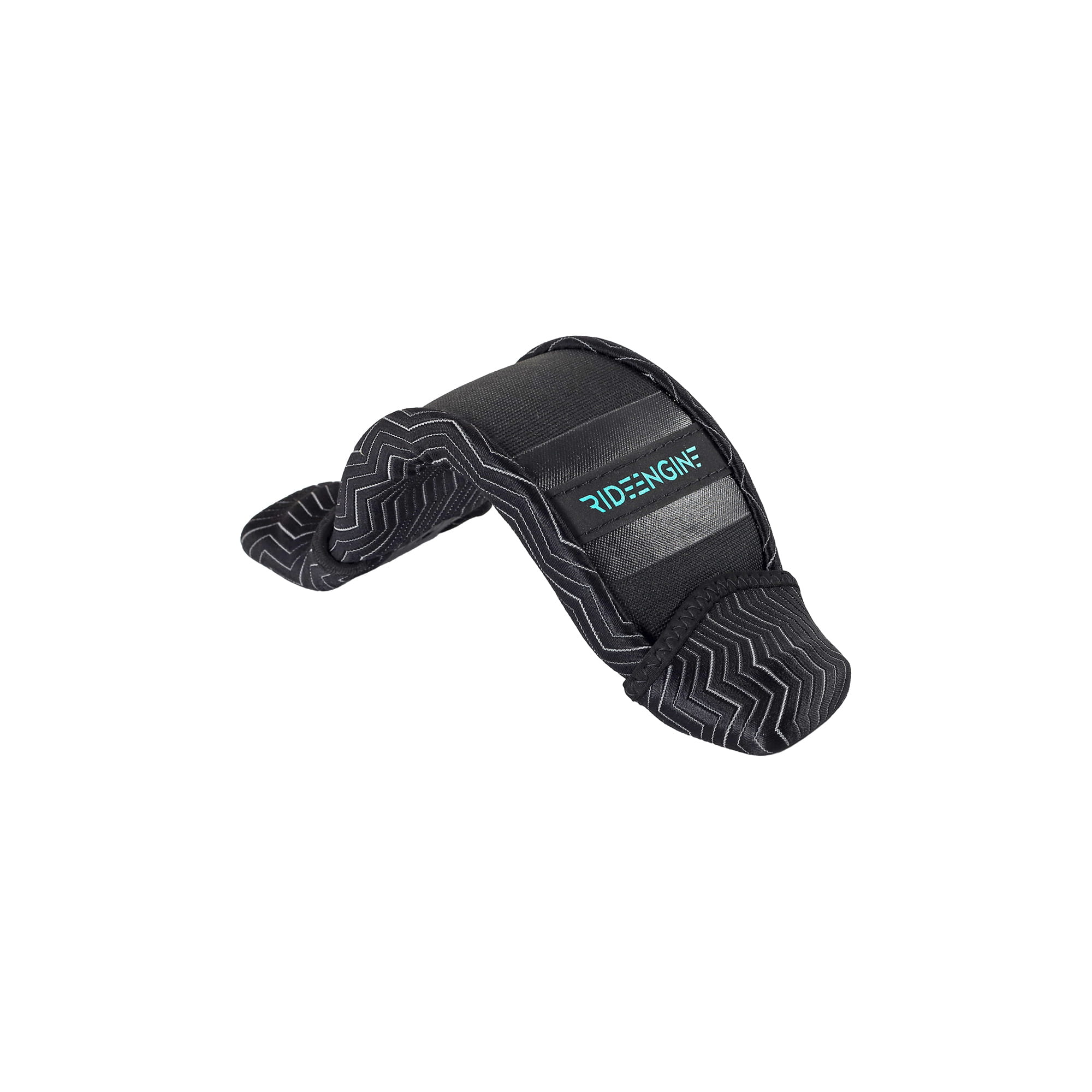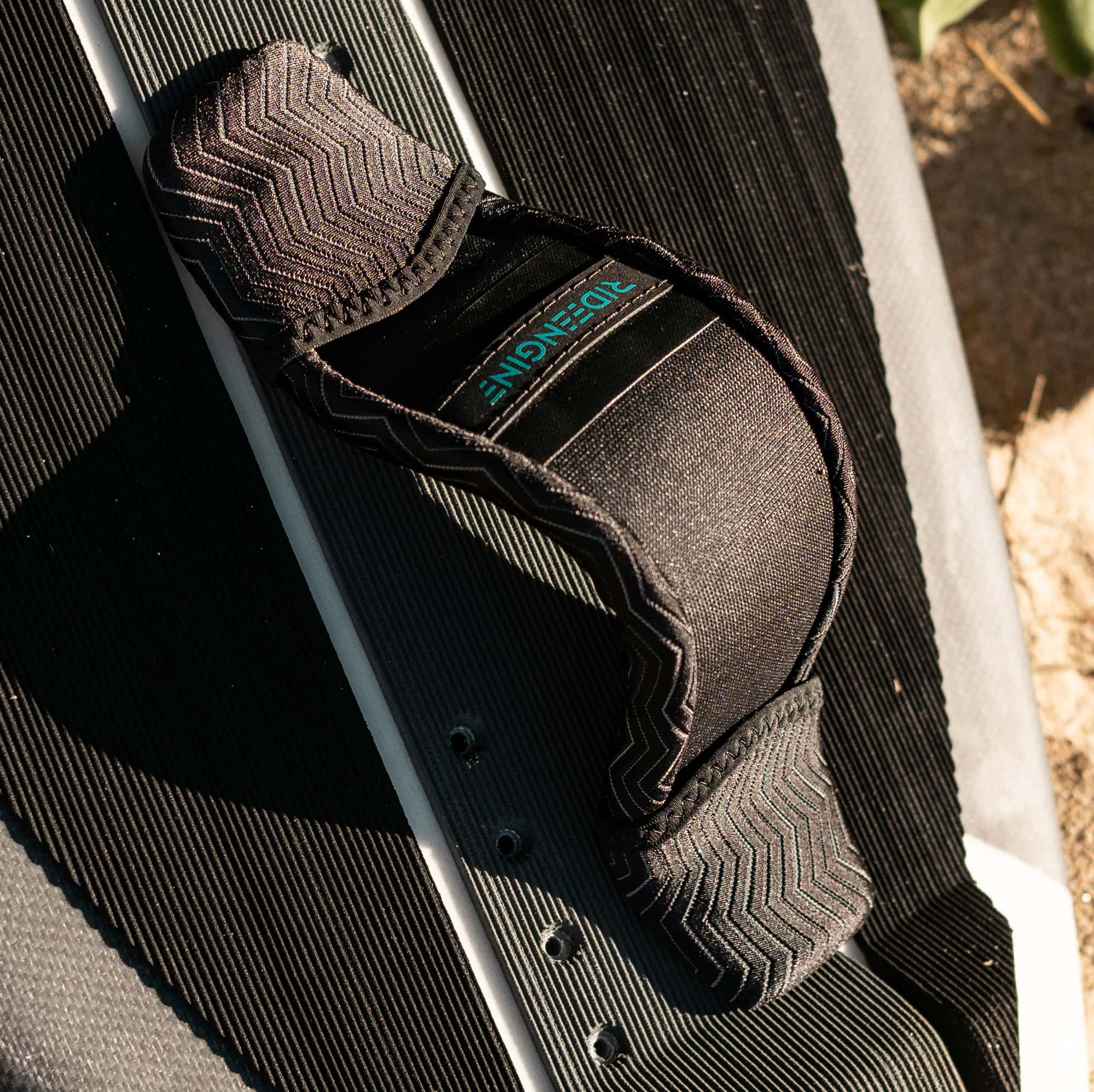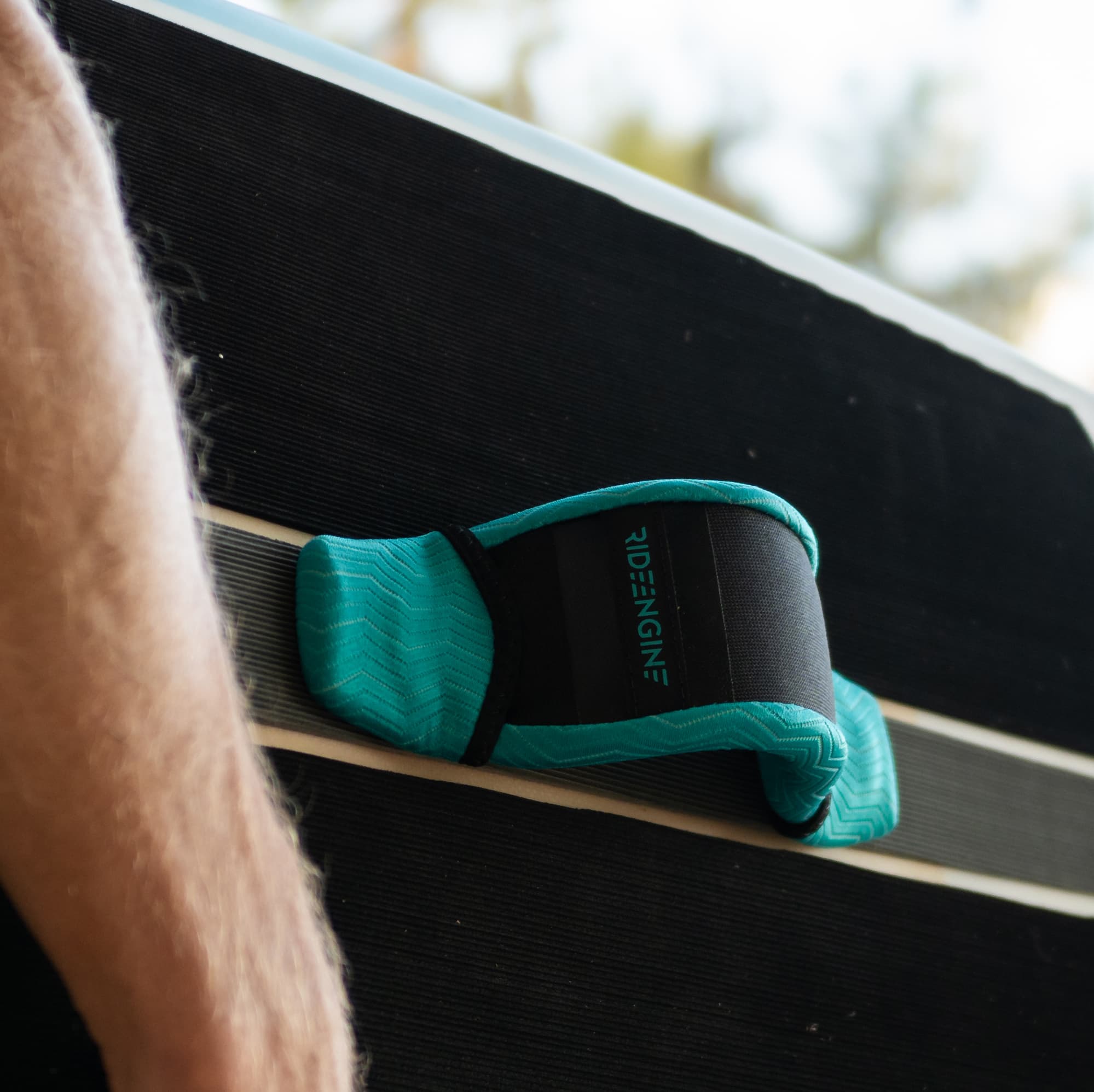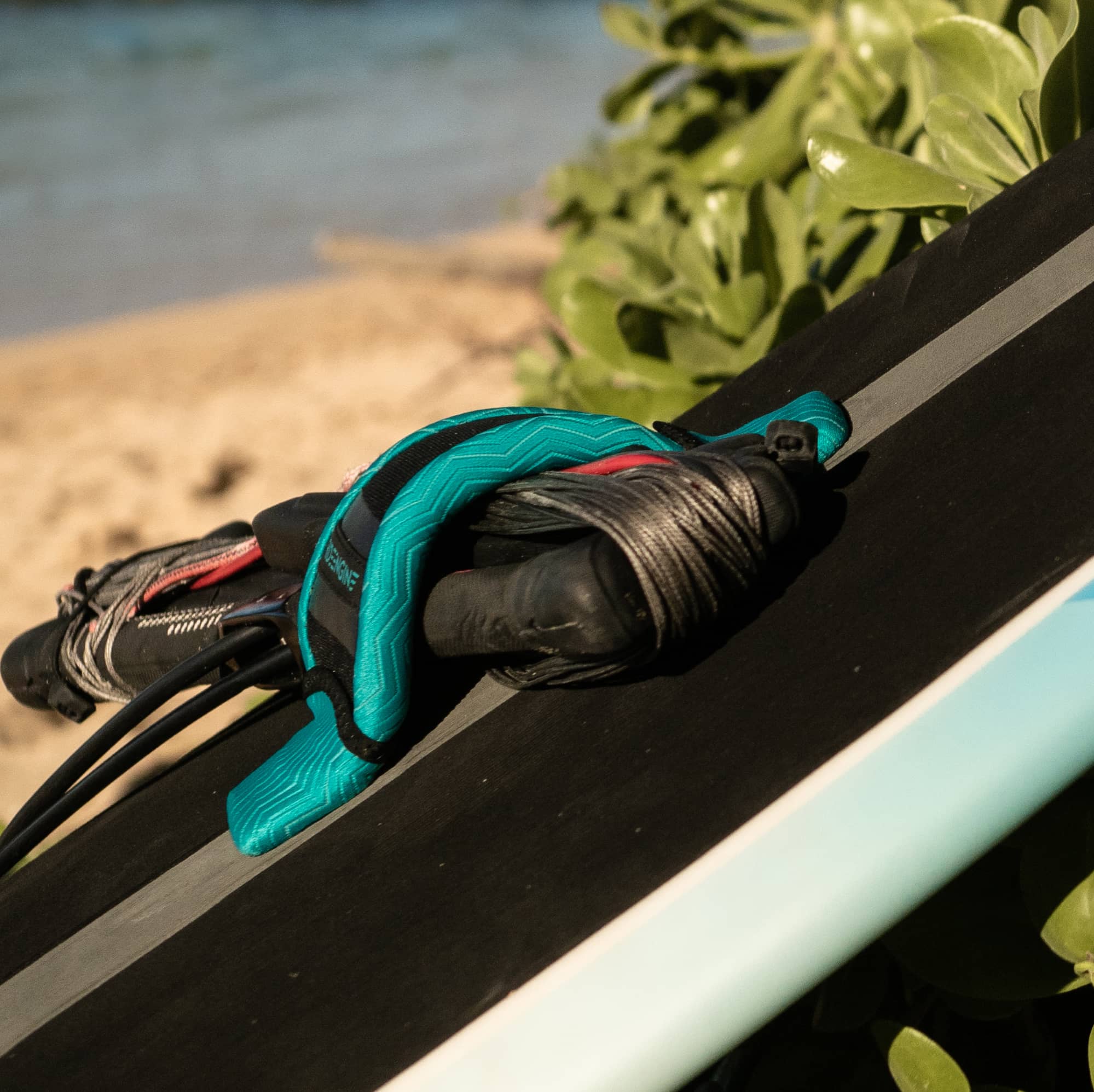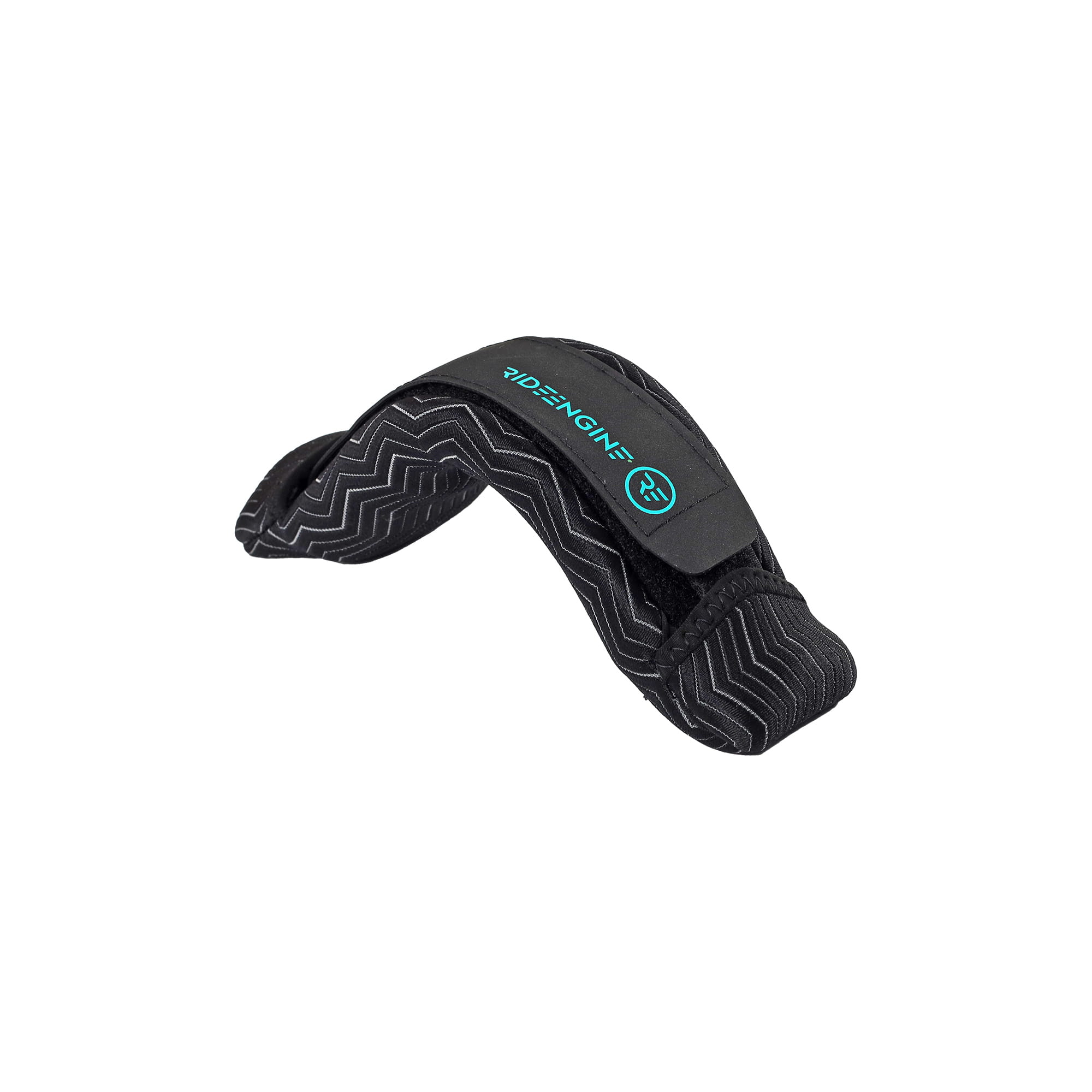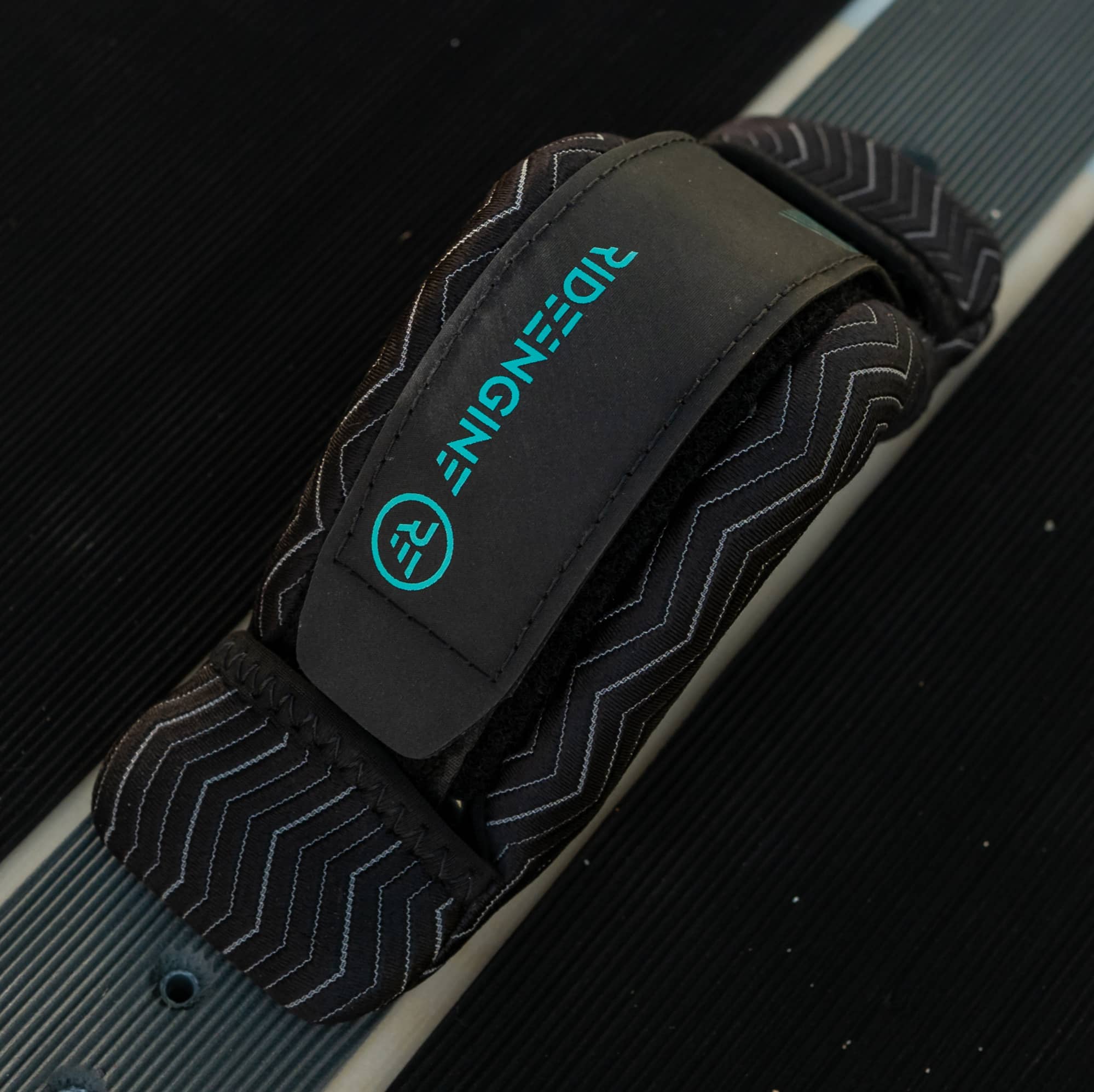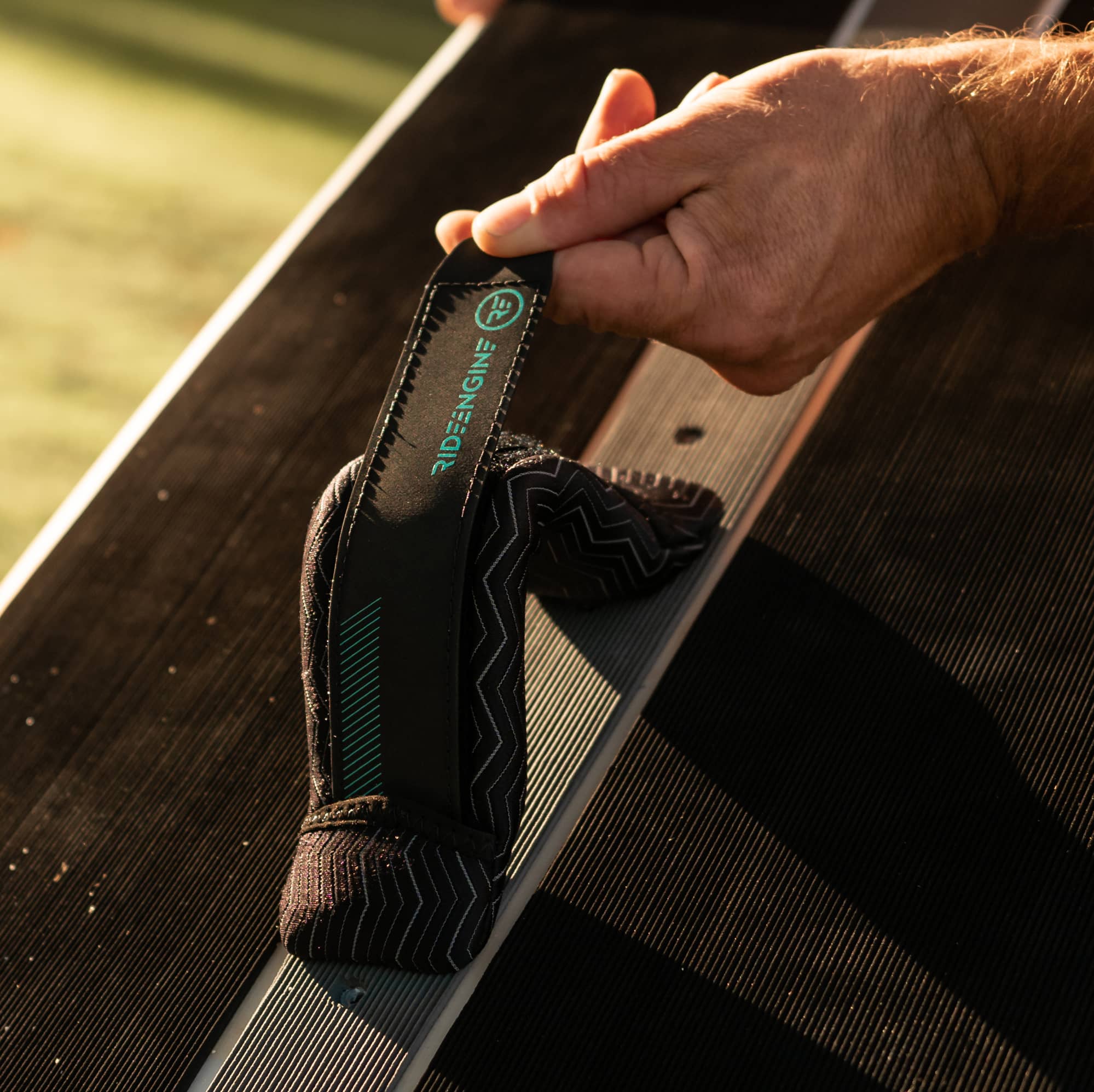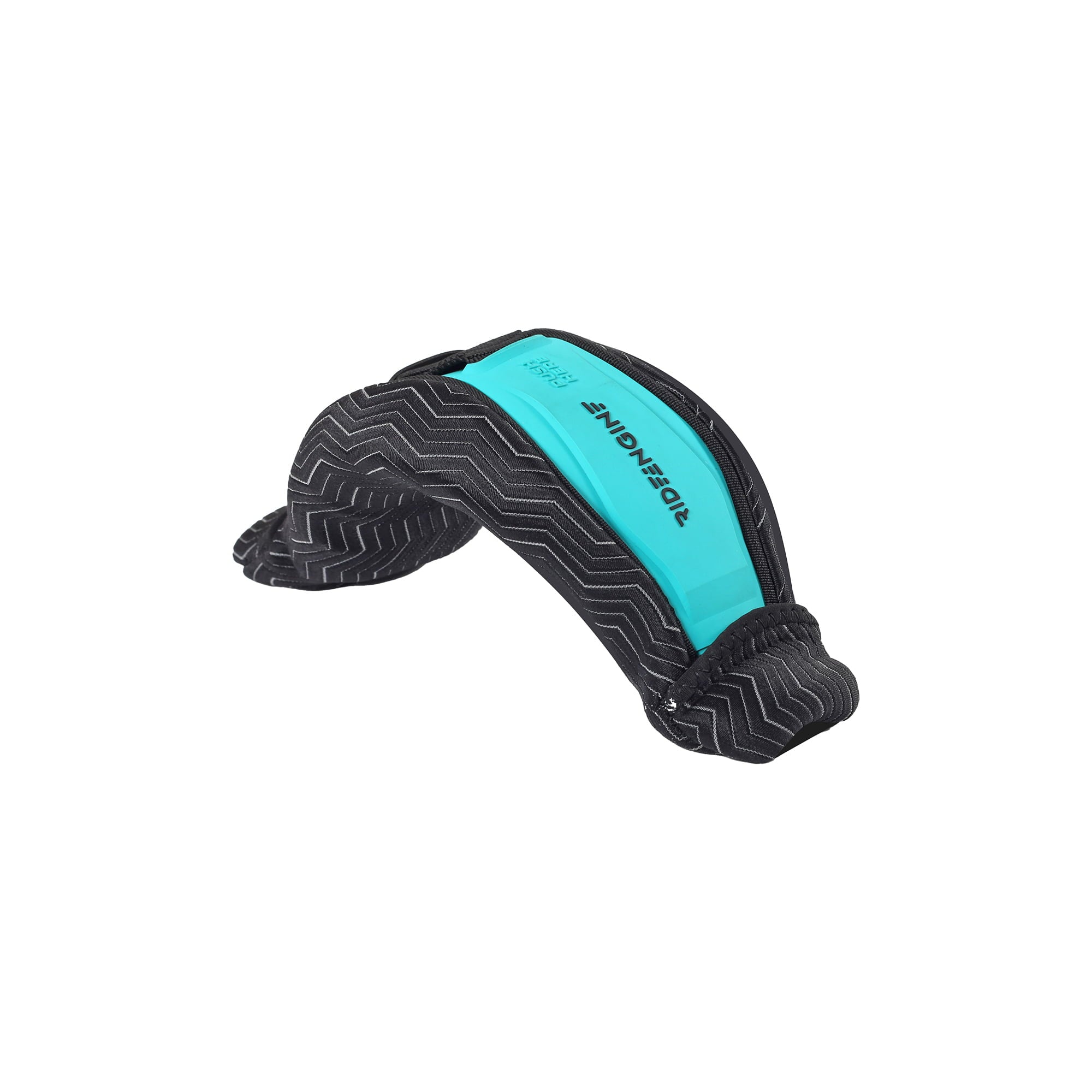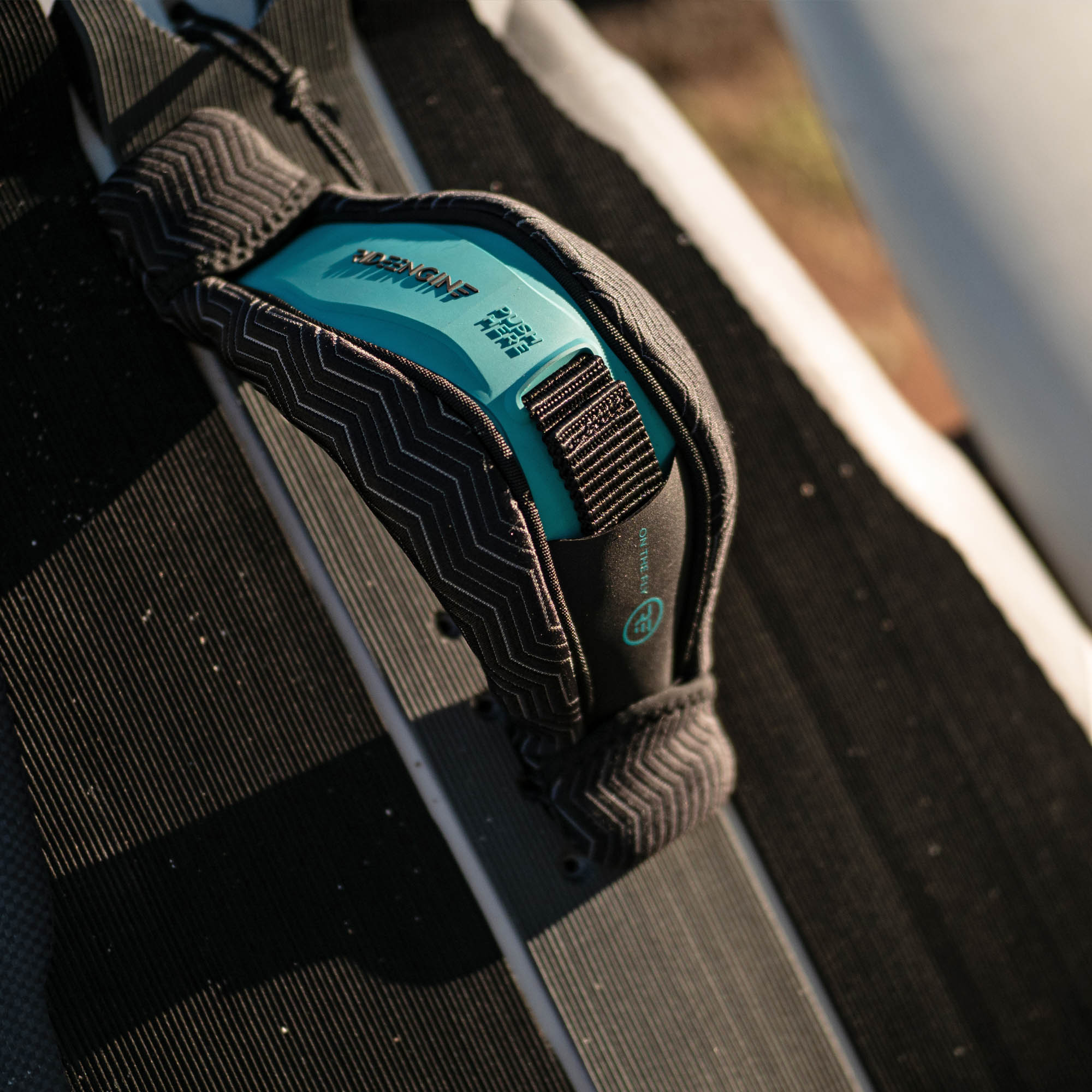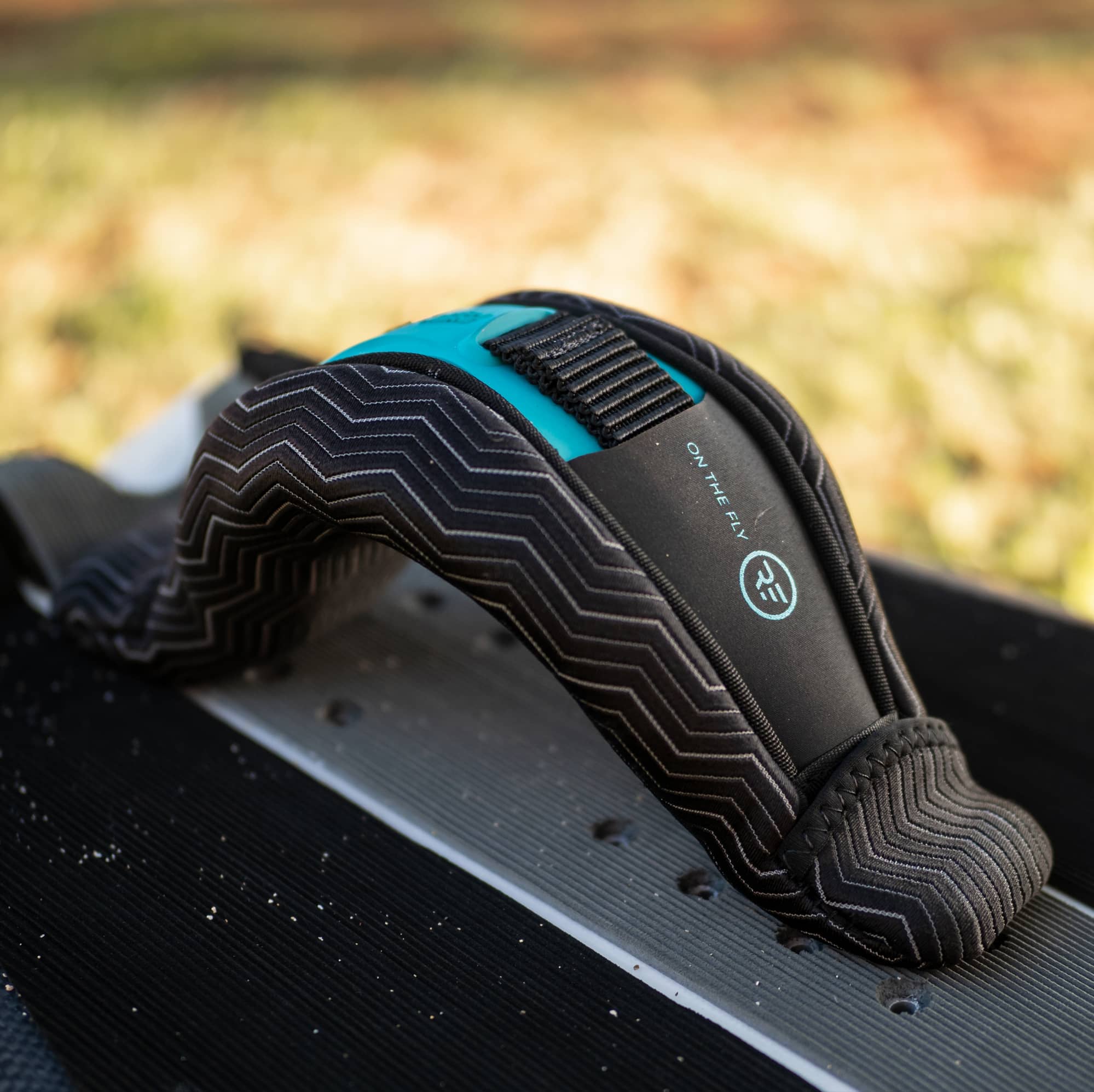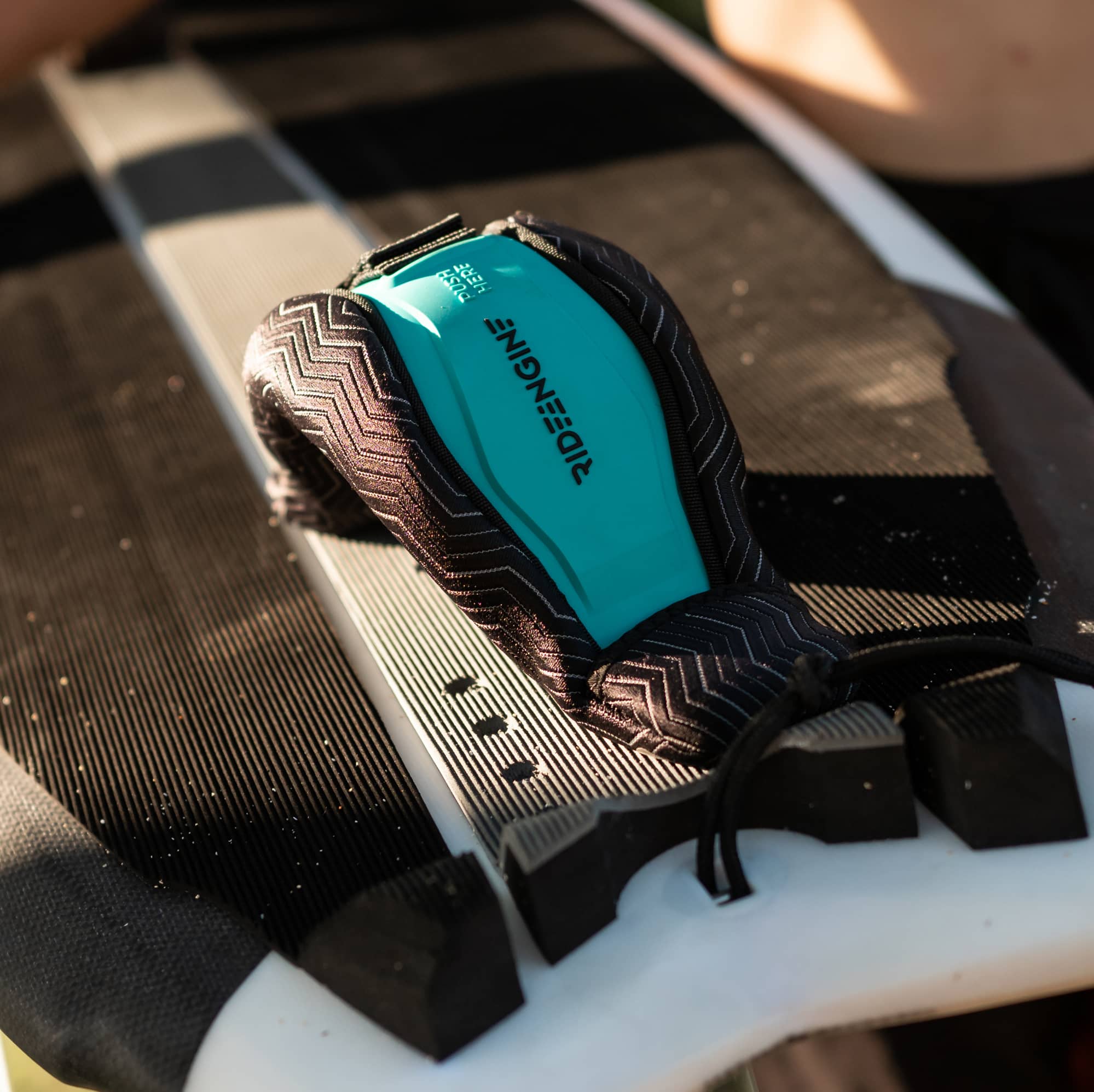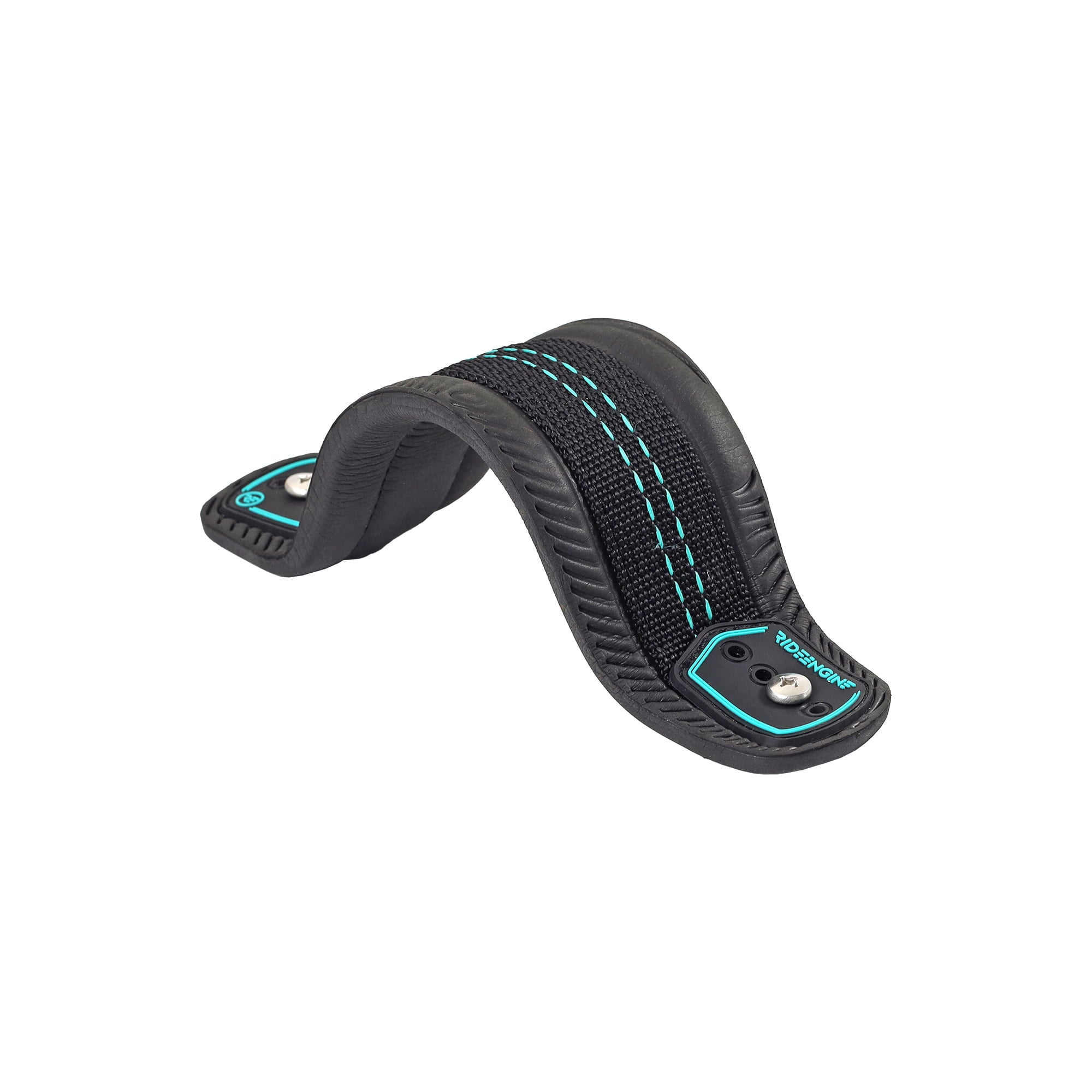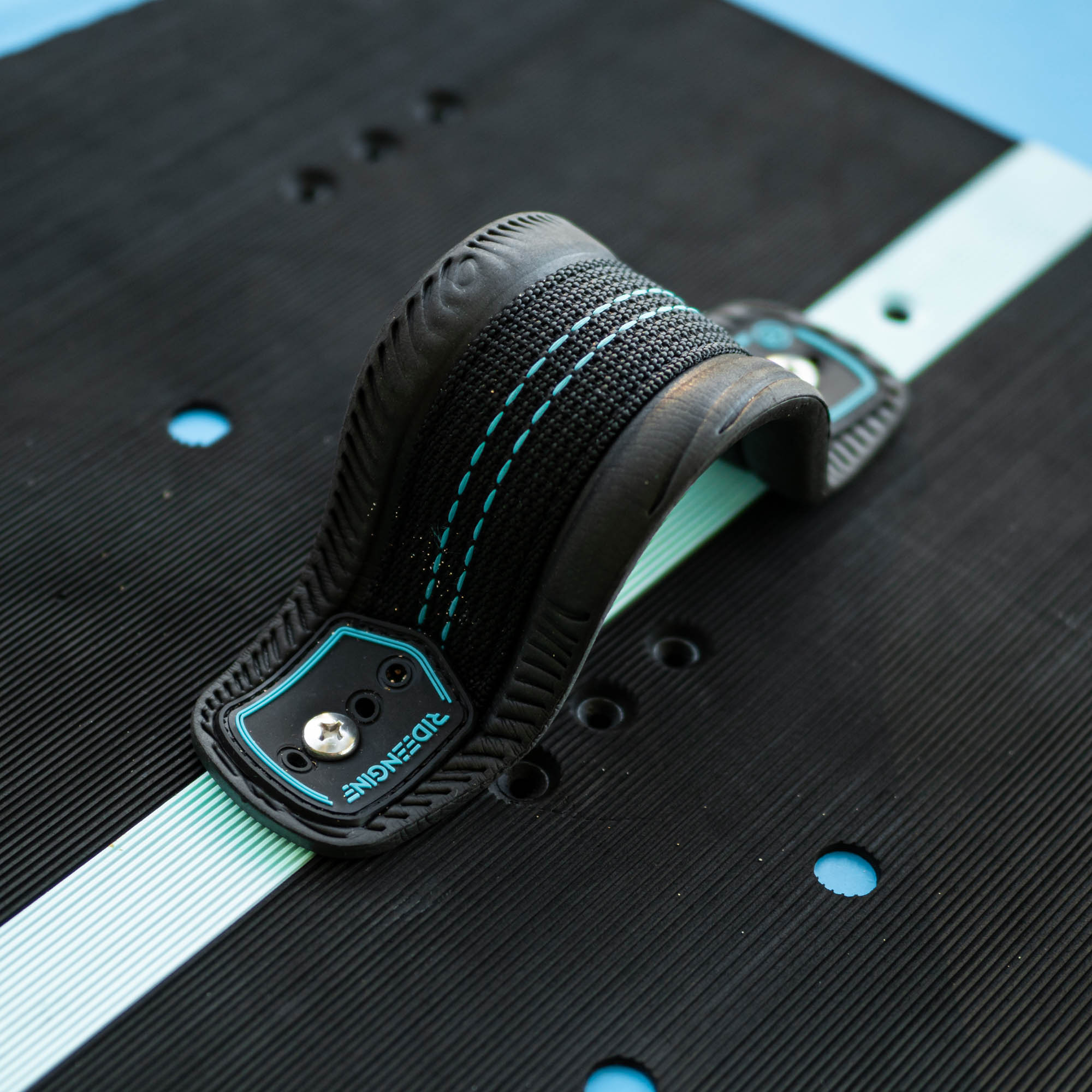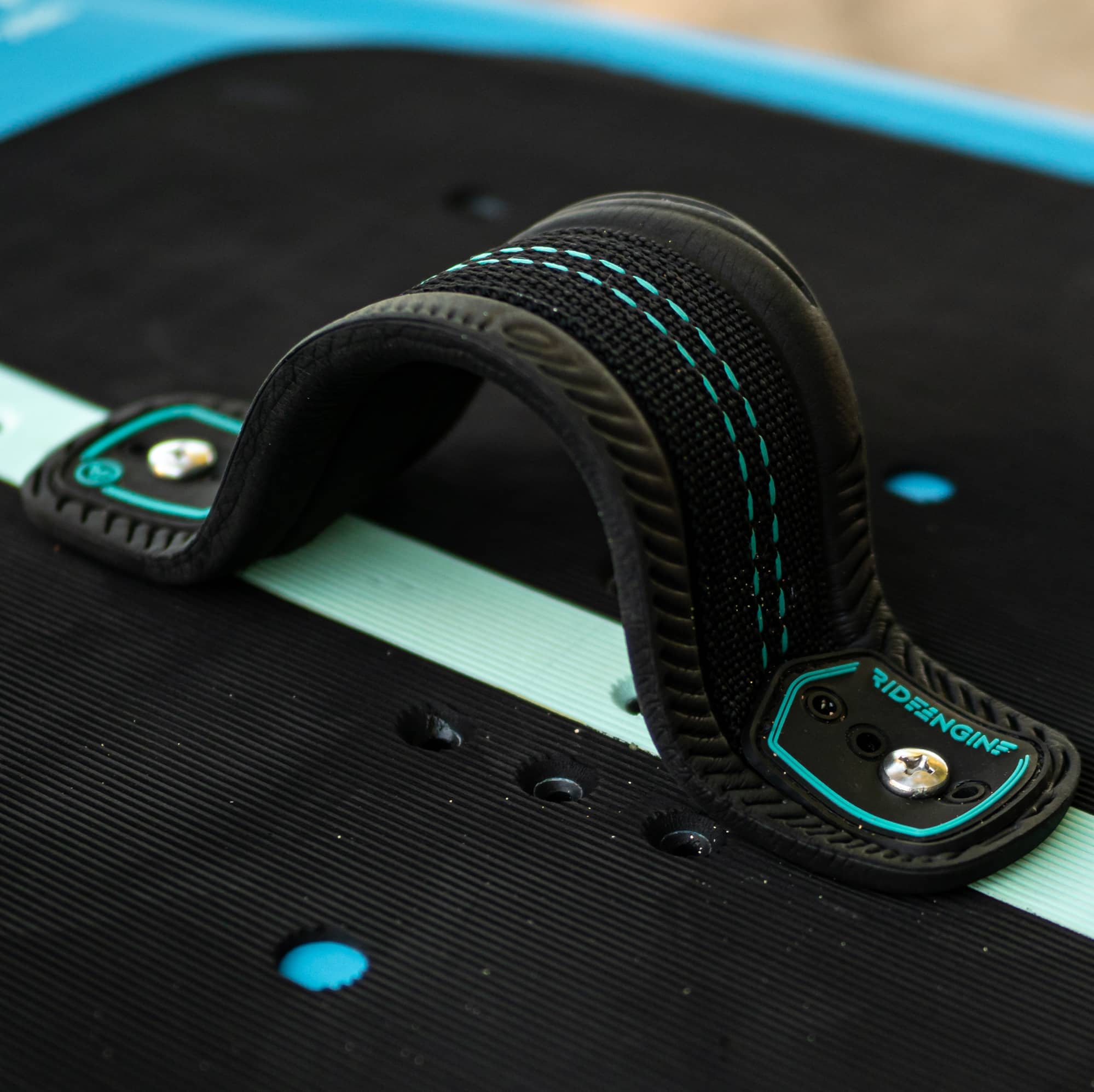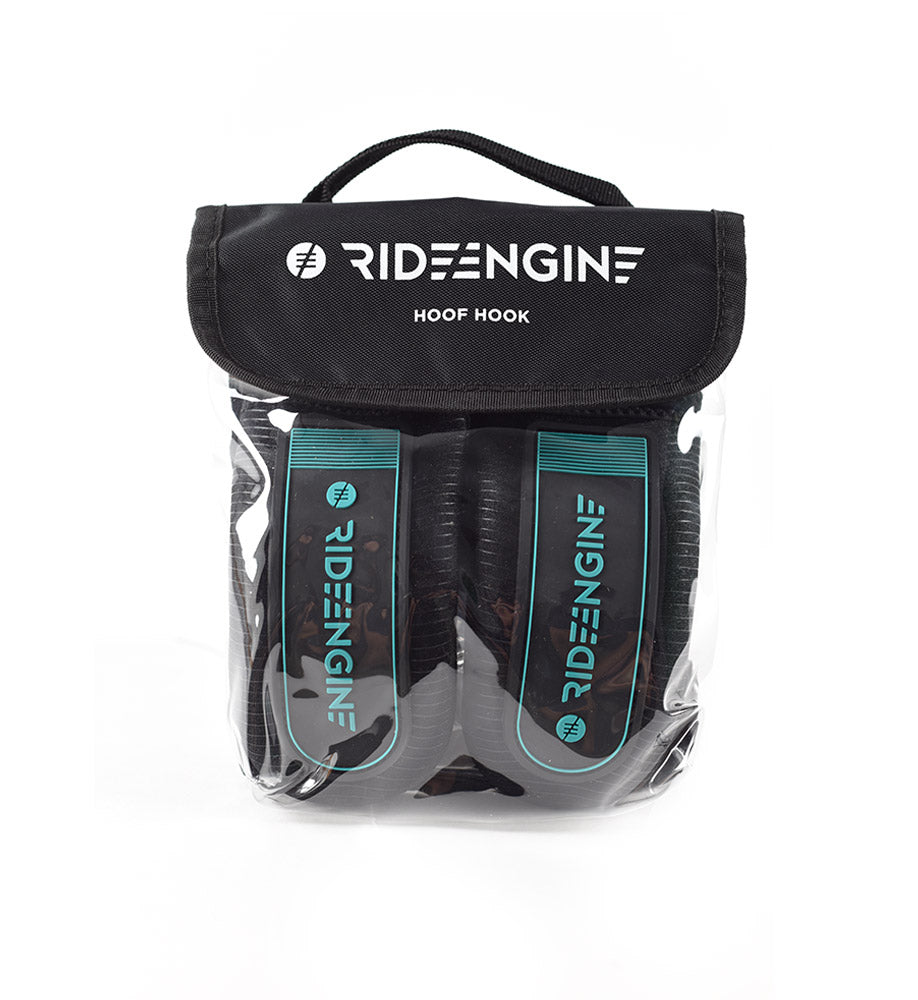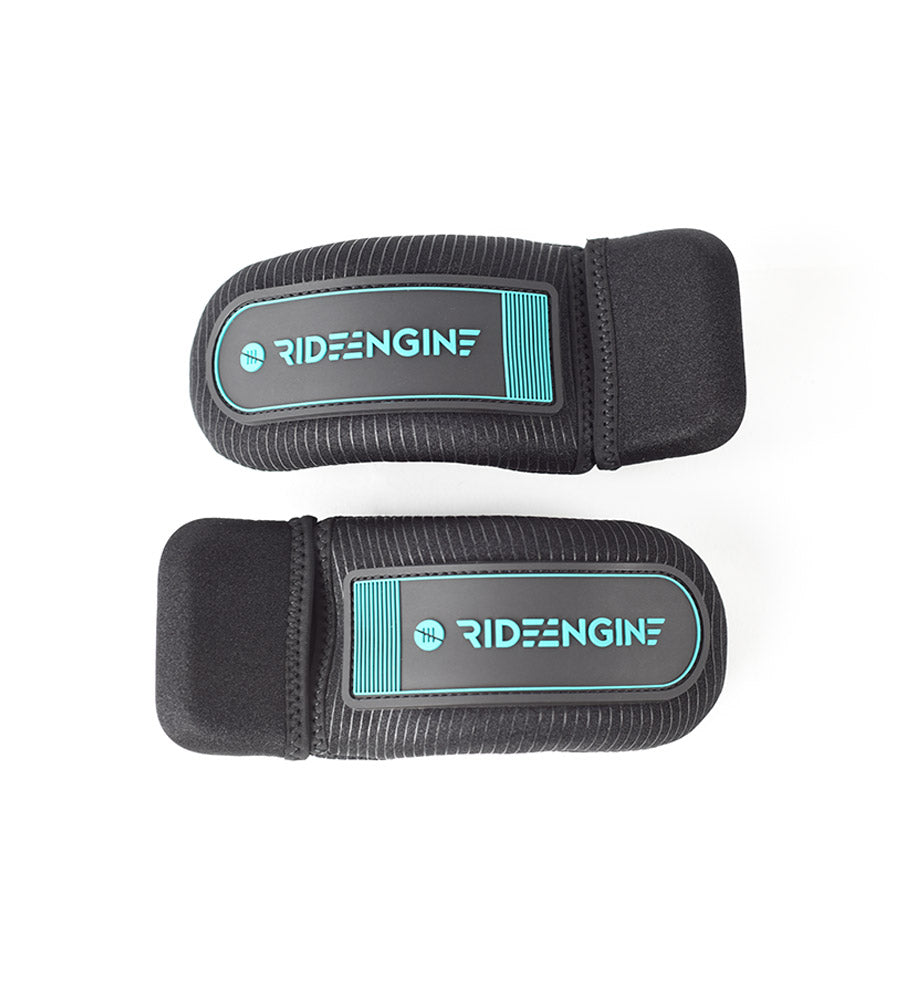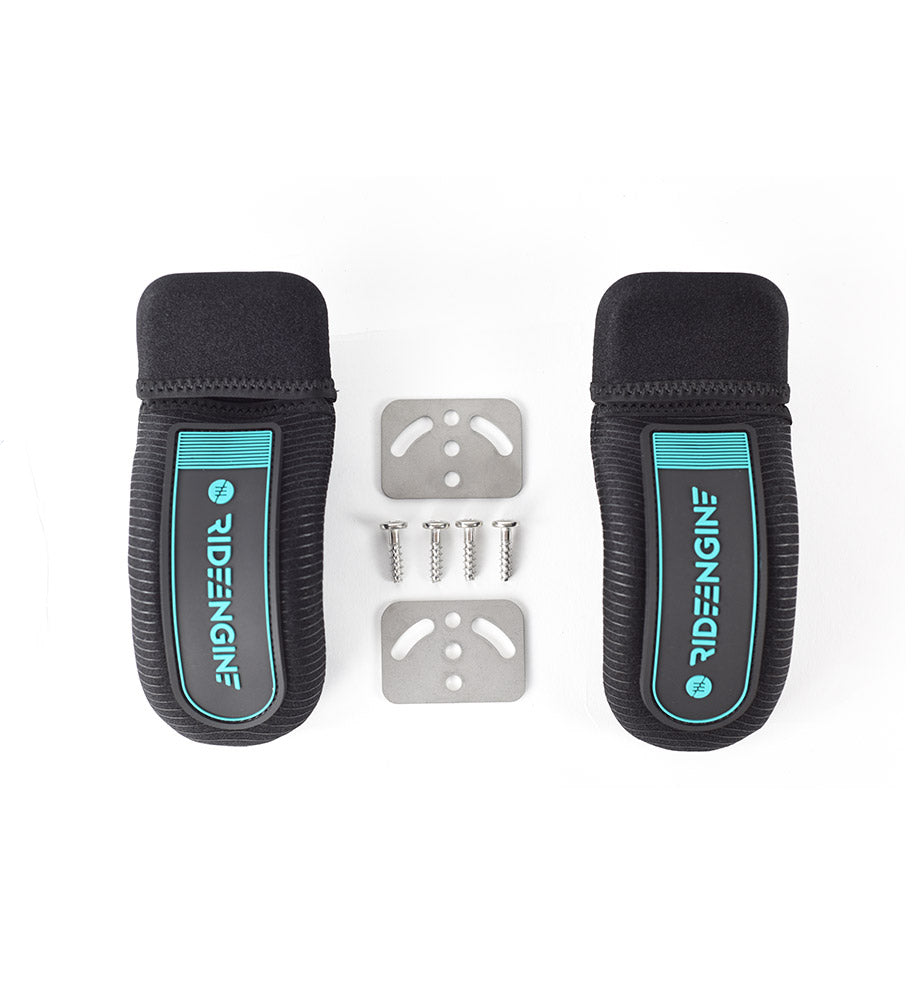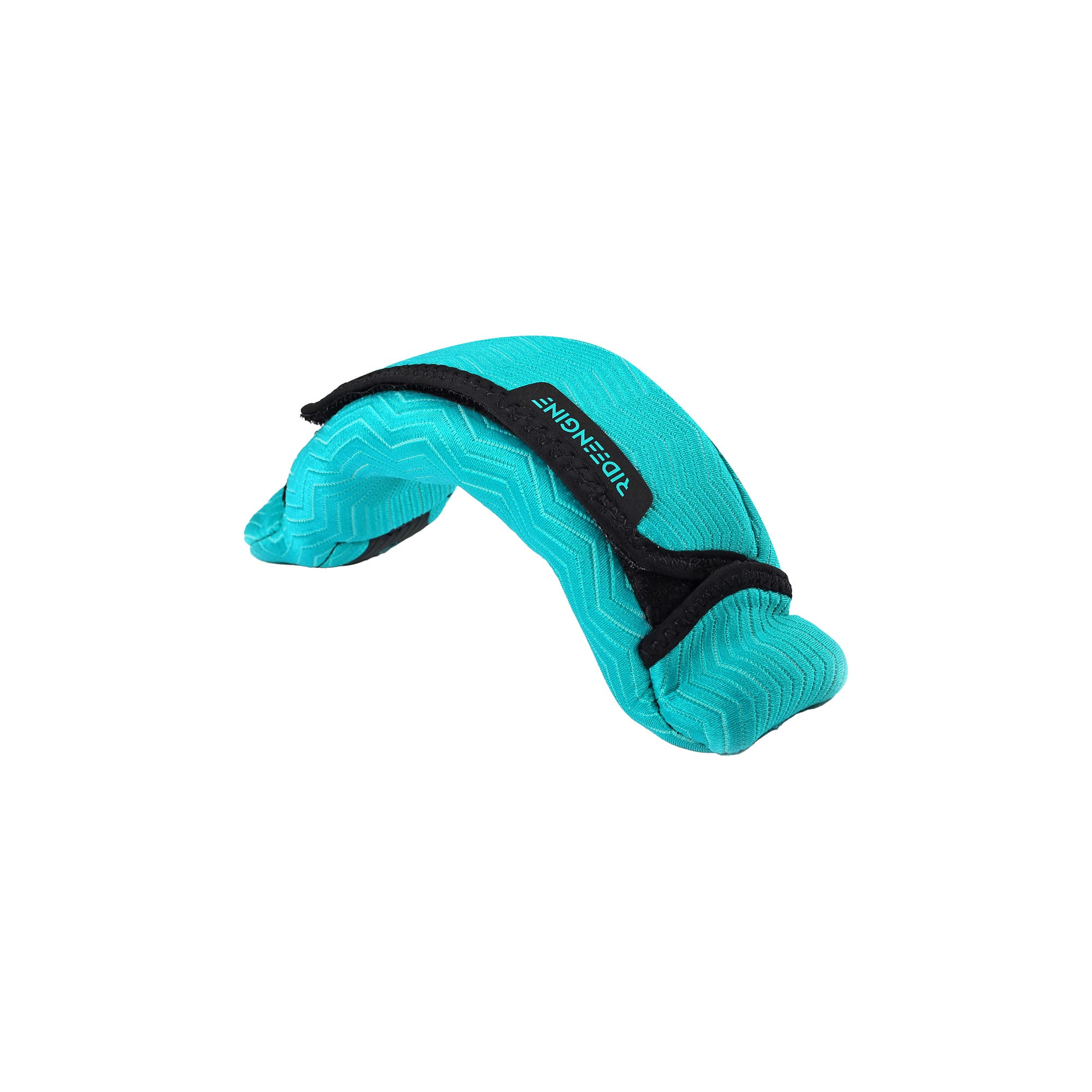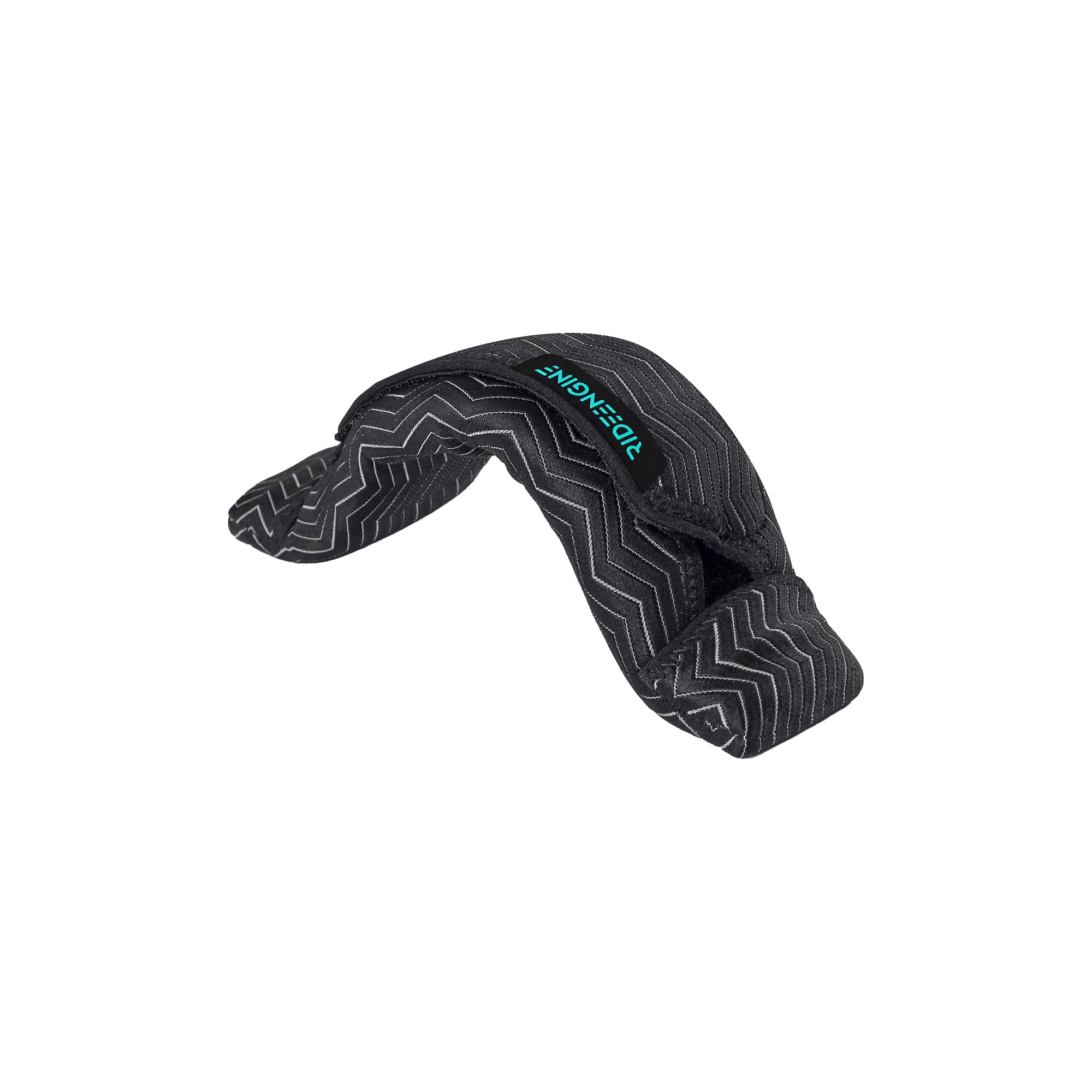Whether you're dialing in your kiteboarding setup or fine-tuning your wing foiling rig, one piece of gear that often flies under the radar, but makes a huge difference, is the foot strap. The right strap doesn't just keep your feet in place; it boosts performance, improves comfort, and gives you the confidence to push your limits.
But with so many styles available, adjustable vs. non-adjustable, minimal vs. padded, it can be tough to know where to start. Don’t worry, we’ve got you covered. At Ride Engine, we’re foot strap experts, and we’re here to break it down so you can find the perfect fit for your riding style, conditions, and goals.
Adjustable Foot Straps: Versatility on the Fly
Most foot straps allow for some basic adjustment during setup, but fully adjustable straps take it a step further. These give you the ability to dial in your fit “on the fly”, whether you're in the water or tweaking things on the beach.
Here’s where adjustable foot straps really shine:
-
Changing Water Temps
If you alternate between riding with boots and going barefoot, an adjustable strap is a no-brainer. Quickly loosen or tighten to match your setup, no tools required. -
Varying Conditions
From glassy flats to heavy chop or pounding surf, conditions change fast. Adjustable straps let you respond in real time, tight for control in rough water, looser for cruising. -
Style Flexibility
Going for mellow downwinders one day and sending big airs the next? Adjustable straps adapt to your session. Cruise loose or ride tight, it’s up to you.
Non-Adjustable Straps: Simple, Lightweight, and Streamlined
Non-adjustable on-the-fly straps may lack mid-session tweakability, but they still offer setup-time customization, and for many riders, that’s more than enough. In fact, for those chasing simplicity, these might be the ideal choice.
-
Lighter Weight
Fewer moving parts means less bulk. If you're a minimalist or obsessed with trimming weight, non-adjustable straps help keep things featherlight. -
Consistency Counts
If you're riding in the same water temps and conditions regularly, you might not need the added complexity of adjustable straps. Set it once and ride with confidence. -
Better for Paddling
Foilers and prone surfers, take note: Non-adjustable straps are often more flexible and low-profile, making them more paddle-friendly and less obtrusive.
Padding: Do You Need More or Less?
Another big factor when choosing a foot strap is padding. While it might seem like a small detail, the right amount of cushioning can make or break your session.
-
More Padding = More Comfort
If you ride with your straps tight, jump often, or just want a cushier interface for your feet, more padding provides the support you need, especially for barefoot riders pushing the limits. -
Less Padding = More Freedom
Prefer a minimal setup? Less padding means less interference, especially if you're paddling or foil surfing. Many prone foilers and surf-style kiteboarders or wing foilers prefer this streamlined design. -
Boots vs. Barefoot
If you always wear boots, a minimal strap often works great—your boots provide the cushioning. But if you’re barefoot and aggressive, that extra padding becomes key to comfort and control.
The Ride Engine Advantage
At Ride Engine, we’ve designed the most comprehensive line of foot straps on the market, with options tailored to every riding style, water condition, and performance preference. Whether you’re charging big waves, cruising flatwater, or dialing in a technical foil setup, there’s a Ride Engine strap built just for you.

